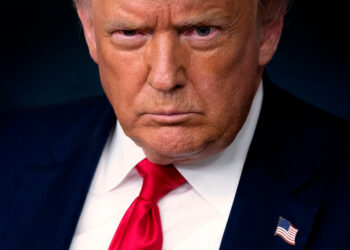A basic principle in economics tells us that goods should be produced where they are cheapest to make. In this era of globalization, the implementation of this principle means that profit-maximizing firms in the United States have found that intermediate goods – used to make one or more final products – and some final goods are often cheaper to produce in China.
American firms such as Apple, Macy’s, Microsoft, and Under Armour all produce a large number of goods or parts in China and therefore rely greatly on supply chains based in China. The extent of this reliance can be enormous. For instance, the multinational P&G has 387 suppliers in China that ship 9,000 materials globally, affecting the production of 17,600 finished goods.
The coronavirus pandemic offers a moment to reflect on whether this great reliance on Chinese supply chains is desirable for U.S. firms and the nation.
COVID-19 Pandemic
Drawing from the adage that asks us to not put all our eggs in one basket, several observers have wondered whether the U.S. is making a serious mistake by relying excessively on China to keep its economy humming. The coronavirus pandemic has brought such concerns into sharp focus.
To manage the outbreak, the Chinese government has closed large numbers of factories and ports, and entire cities and even provinces have been locked down. These stringent measures have caused significant disruptions to U.S. firms with China-only supply chains. In fact, as a direct result of these severe measures, Apple, Microsoft, Starbucks, and others have already expressed concerns about their earnings and profits.
Even though this commercial dependence of American firms on Chinese supply chains is troubling, what is even more troubling is the extent to which the U.S. is dependent on China for vital goods such as medicines.
Access to Vital Medicines
In the aftermath of the COVID-19 outbreak, fears about a lack of access to vital drugs have grown in the United States. In this regard, Peter Navarro, an aide to President Donald Trump, recently said that the U.S. has outsourced far too much of its supply chain for essential medicines to China and that it is now time to bring these supply chains back onshore.
Focusing, for example, on antibiotics, the concern is that if the small number of Chinese factories that provide a large share of the active pharmaceutical ingredients (APIs) in the world’s antibiotics were to shut down, then this would have an extremely destabilizing impact on markets in the U.S. and elsewhere.
In fact, in such a situation, the U.S. could not pivot to an alternate source such as India because even though India supplies 40 percent of America’s generic drugs, India is also ultimately reliant on China to obtain the critical APIs.
This excessive reliance on Chinese supply chains in the context of vital drugs is now being seen as a national security threat in the United States. In this regard, Christopher Priest, a senior Pentagon official, recently argued that the national security risks associated with the increased Chinese dominance of the global API market could not be overstated.
Which Way Now?
First, the U.S. federal government needs to create a list of goods, such as medicines, that are so vital for the nation’s security that it would be imprudent to permit production outside the country. In other words, the U.S. will need to be self-reliant in a small set of vital goods. Note that this view is entirely consistent with the view of Chinese President Xi Jinping, who has said that China also needs to be self-reliant in some areas.

Second, firms in the U.S. need to carefully evaluate the economic arguments in favor of maintaining China-only supply chains, given the many advantages of diversifying their supply chains. This is starting to happen because of rising labor costs in China, but the disruptions caused by the Chinese government’s handling of the COVID-19 pandemic has led to the acceleration of existing plans for diversification.
Finally, consistent with existing results in international trade theory, the U.S. ought to consider using trade policy to attain a non-economic objective such as self-sufficiency in the identified set of vital goods. When pursuing such a course of action, Washington ought to consider coordinating its actions with those of an ally such as the European Union.
Disclaimer: The views and opinions expressed here are those of the author and do not necessarily reflect the editorial position of The Globe Post.























